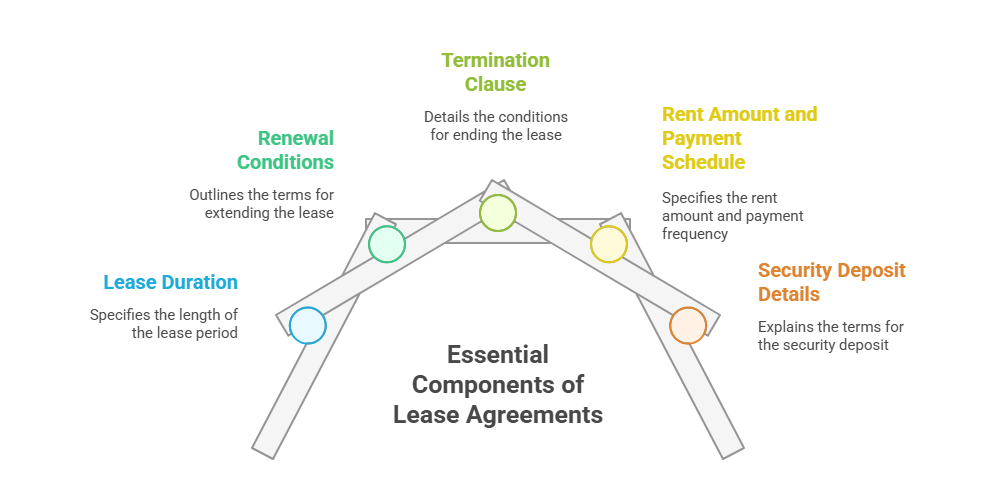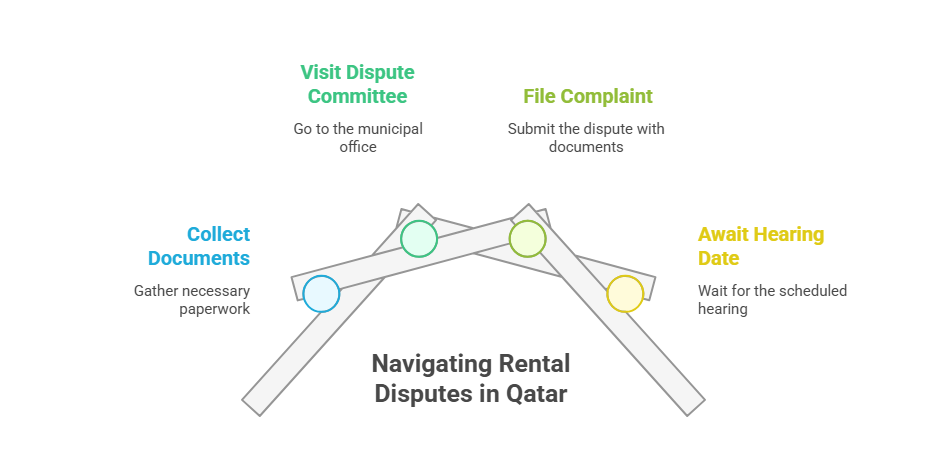
Table of Contents
Understanding Qatar Rental Laws
Renting property in Qatar is governed primarily by Law No. 4 of 2008 Regarding Property Leasing, which outlines the rights and responsibilities of both landlords and tenants. This law covers issues such as rent regulation, eviction procedures, notice periods, and dispute resolution mechanisms.
Key Legal Clauses in Lease Agreements
Most lease contracts in Qatar include:
If your contract lacks a termination clause, default provisions from Qatari law will apply.
What Qatar Rental Law Says About Notice Requirements
Qatar rental law requires a reasonable notice period before lease termination unless explicitly waived in writing. Typically, this is:
-
30 days for monthly rentals
-
60–90 days for annual leases
Immediate termination without notice may be deemed unlawful unless:
-
There's a serious breach of contract
-
The tenant fails to pay rent for consecutive months
-
The property becomes uninhabitable
Lease Termination Without Notice
When Landlords Can Terminate Without Warning
A landlord may terminate a lease without notice in the following cases:
-
The tenant causes substantial damage to the property
-
The tenant uses the property for illegal purposes
-
Rent is overdue for more than two consecutive months
-
The tenant sublets the property without permission
In such cases, the landlord must still go through the Rent Dispute Settlement Committee to issue a legal eviction order.
When Tenants Can Break Lease Early
Tenants may also end a lease early without facing penalties if:
-
The landlord breaches terms (e.g., harassment, refusal to repair)
-
The property becomes unsafe or inhabitable
-
Government or employment relocation occurs (especially for expats)
Legal Consequences of Breaking a Lease Illegally
Terminating a lease without legal grounds or notice can lead to:
-
Forfeiture of security deposit
-
Legal compensation to the landlord
-
Court-imposed fines
Tenant and Landlord Rights
Rights of Tenants Under Qatar Law
Tenants are protected from unfair eviction and rent increases. Their core rights include:.png)
Responsibilities of Landlords
Landlords must:
-
Maintain the property in livable condition
-
Provide valid Ejari (tenancy registration)
-
Refrain from harassment or unlawful entry
-
Provide proper legal documentation for any action
Quiet Enjoyment and Harassment Protections
Tenants have the right to use the property without disruption. If landlords:
-
Enter the property without notice
-
Shut off utilities
-
Threaten eviction without cause
the tenant can file a formal complaint.
Eviction and Dispute Resolution
What Constitutes a Legal Eviction in Qatar
A legal eviction requires:
-
Valid reason supported by evidence
-
Proper written notice
-
Approval from the Rent Dispute Committee
Unlawful eviction is a criminal offense and can result in fines and compensation to the tenant.
The Eviction Process and Notice Periods
Eviction typically follows this timeline:
-
Written notice issued (30–90 days)
-
Tenant response (acceptance or legal challenge)
-
Case referred to Rent Dispute Committee
-
Court hearing and judgment
-
Enforcement via court order
Reporting Illegal Evictions or Harassment
Tenants can:
-
File a complaint with the Ministry of Justice
-
Approach the Rent Dispute Resolution Committee
-
Seek legal aid or appoint a property lawyer
Filing a Rental Dispute
How to File a Rental Dispute in Qatar
To file a dispute:
Qatar Rent Dispute Committee Procedure
This committee reviews evidence, hears both sides, and issues a ruling within a few weeks. They can:
-
Cancel unjust lease termination
-
Order rent refund or compensation
-
Grant legal eviction if justified
Documentation and Evidence Required
You’ll need:
-
Original lease agreement
-
Rent receipts or bank statements
-
Communication records (emails, messages)
-
Pictures or inspection reports (if property damage is involved)
Contract Clauses to Watch Out For
Termination Clauses and Their Legal Weight
Termination clauses must:
-
Be clear and specific
-
Outline notice period
-
Be signed by both parties
Ambiguous clauses may not hold up in legal proceedings.
Automatic Renewal and Exit Options
If not canceled, many leases automatically renew for another term. Ensure your lease has a termination option before renewal.
Lease Agreement Templates and Key Terms
Key terms to check:
-
Deposit return conditions
-
Rent increment timeline
-
Maintenance responsibilities
-
Termination penalties
Use contracts that follow Qatar’s standard rental templates approved by the Ministry of Municipality.
Legal Help for Rental Issues
When to Consult a Lawyer
Hire a lawyer if:
-
You’re facing unlawful eviction
-
You want to terminate a lease early
-
The landlord refuses to refund your deposit
-
You’re involved in a tenancy dispute or harassment claim
Best Law Firms and Legal Services in Qatar
Look for firms that:
-
Specialize in real estate or property law
-
Offer bilingual (Arabic/English) support
-
Are licensed by the Qatar Ministry of Justice
Role of Mediation in Rental Disputes
Mediation is often faster and less expensive than litigation. A legal mediator helps both parties negotiate a fair outcome without court proceedings.
Expat-Specific Considerations
Can Expats Be Evicted Without Notice?
No. Expats have the same legal rights as locals. Any eviction must follow the legal notice period and official process.
How to Protect Yourself with Proper Documentation
Expats should:
-
Always demand a signed lease
-
Avoid verbal agreements
-
Keep email records and receipts
-
Take pictures of the property before moving in and out
Leaving Qatar Before Lease Ends: What You Need to Know
If leaving due to job transfer or repatriation:
-
Notify the landlord in writing
-
Provide employer’s letter (if needed)
-
Negotiate early exit terms
-
Avoid abandonment, which can lead to blacklisting or legal action
Final Advice
Tips for Avoiding Rental Conflicts
-
Always sign a detailed written lease
-
Conduct an initial property inspection
-
Pay rent via bank transfer or receipt-based method
-
Communicate only in writing when possible
Legal Steps to Protect Your Lease Rights
-
Know your legal notice period
-
Learn your tenant or landlord responsibilities
-
Use official government complaint channels if disputes arise
Future Trends in Rental Law Reforms in Qatar
Qatar is modernizing its rent regulation system, focusing on:
-
Digitized rental dispute filing
-
Stronger tenant protections
-
Clearer landlord responsibilities
-
Transparent eviction and notice procedures
Need help resolving a rental issue in Qatar?
Consult a qualified property lawyer or legal service with expertise in tenancy law and dispute resolution.
Disclaimer: This article provides general information and should not be construed as legal advice. Please consult with a qualified and experienced lawyer for personalized guidance regarding your specific situation.
